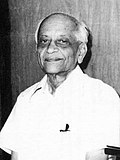| |||||||||||||||||||||||||||||||||||||||||||||||||||||||||||||||||||||||||||
494 of the 508 seats in the Lok Sabha [a] 248 seats needed for a majority | |||||||||||||||||||||||||||||||||||||||||||||||||||||||||||||||||||||||||||
|---|---|---|---|---|---|---|---|---|---|---|---|---|---|---|---|---|---|---|---|---|---|---|---|---|---|---|---|---|---|---|---|---|---|---|---|---|---|---|---|---|---|---|---|---|---|---|---|---|---|---|---|---|---|---|---|---|---|---|---|---|---|---|---|---|---|---|---|---|---|---|---|---|---|---|---|
| Registered | 216,361,569 | ||||||||||||||||||||||||||||||||||||||||||||||||||||||||||||||||||||||||||
| Turnout | 55.42% ( | ||||||||||||||||||||||||||||||||||||||||||||||||||||||||||||||||||||||||||
| |||||||||||||||||||||||||||||||||||||||||||||||||||||||||||||||||||||||||||
 Results by constituency | |||||||||||||||||||||||||||||||||||||||||||||||||||||||||||||||||||||||||||
| |||||||||||||||||||||||||||||||||||||||||||||||||||||||||||||||||||||||||||
General elections were held in India between 19 and 25 February 1962 to elect members of the third Lok Sabha. Unlike the previous two elections, each constituency elected a single member. [1]
Contents
Jawaharlal Nehru won another landslide victory in his third and final election campaign. The Indian National Congress received 44.7% of the vote and won 361 of the 494 elected seats. This was only slightly lower than in the previous two elections and they still held over 70% of the seats in the Lok Sabha.





